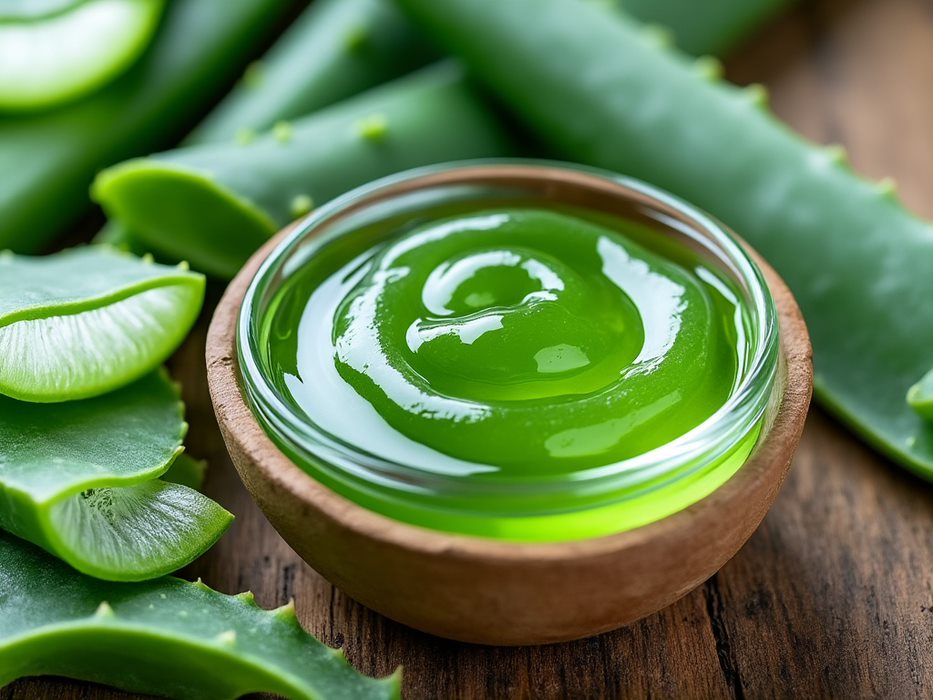Wondering how to manage vaginal atrophy naturally? You’re not alone. Discover simple, effective treatments that can help you regain comfort and confidence without relying on synthetic hormones. Keep reading to learn more.
Key Takeaways
- Vaginal atrophy, also known as genitourinary syndrome of menopause (GSM), is caused by decreased estrogen levels, affecting postmenopausal women, breastfeeding mothers, and those on specific medications.
- Key symptoms include vaginal dryness, itching, irritation, burning sensations, shortened vagina, and frequent urinary tract infections (UTIs).
- Natural Treatments Available: Effective natural treatments include herbal remedies like sea buckthorn oil and omega-3 fatty acids, dietary changes incorporating phytoestrogens and proper hydration, and regular exercise like pelvic floor physical therapy.
- Jojoba oil, aloe vera, and olive oil are excellent natural options to provide relief from vaginal dryness and maintain vaginal health.
- Lifestyle Adjustments: Regular hydration, engaging in vaginal sex to maintain elasticity and blood flow, and avoiding irritants are crucial steps in managing symptoms naturally.
- Additional Approaches: Incorporating probiotics and vaginal dilator therapy can further help in balancing vaginal pH levels and improving vaginal elasticity, respectively.
Table of Contents
Understanding Vaginal Atrophy
Vaginal atrophy, often called genitourinary syndrome of menopause (GSM), involves the thinning and inflammation of vaginal tissues due to lower estrogen levels. Although typically affecting postmenopausal women, it can also occur during breastfeeding or due to certain medications or medical conditions.
Causes of Vaginal Atrophy
- Decreased Estrogen Levels: The decline in estrogen levels, especially during menopause, is the primary cause of vaginal atrophy. This hormonal change reduces natural lubrication and leads to thinner vaginal tissues.
- Breastfeeding: Breastfeeding can trigger vaginal dryness and atrophy, attributed to naturally low estrogen levels during this period.
- Medications and Medical Conditions: Specific medications and medical conditions can impact hormone levels, causing vaginal atrophy.
- Vaginal Dryness: One of the earliest signs of vaginal atrophy is vaginal dryness, making intercourse uncomfortable.
- Itching and Irritation: The thinning of vaginal tissues can cause persistent itching and irritation, leading to constant discomfort.
- Burning Sensation: You might experience a burning sensation, both in the vagina and during urination, due to the inflamed tissue.
- Shortened Vagina: The vagina might become shorter and narrower over time, contributing to pain during sexual activities.
- Frequent Urinary Tract Infections (UTIs): Recurrent UTIs can be an indicator stemming from changes in the vaginal environment, making it more susceptible to infections.
Understanding these causes and symptoms provides insight into the nature of vaginal atrophy and its impact on everyday life.
Natural Treatments for Vaginal Atrophy
Explore natural treatments to manage vaginal atrophy effectively. Using herbal remedies, making dietary changes, exercising regularly, and using natural lubricants and moisturizers can offer relief.
Herbal Remedies
Herbal remedies offer a natural approach to alleviating vaginal atrophy symptoms.
- Sea Buckthorn Oil: This oil, rich in essential fatty acids, helps improve vaginal elasticity and tissue integrity. Apply it directly or consume it in supplement form.
- Vitamins: Vitamin E, Vitamin A, Beta Carotene, and B Vitamins can alleviate symptoms. These vitamins promote tissue health and improve moisture levels.
- Omega-3 Fatty Acids: Found in fish oil and flaxseed oil, these acids support overall vaginal health and reduce inflammation.
Dietary Changes
Diet plays a significant role in maintaining vaginal health.
- Phytoestrogens: Consuming foods rich in phytoestrogens, such as soybeans, soy products, and flaxseed, helps alleviate symptoms. These compounds mimic estrogen and support tissue health.
- Hydration: Drinking enough water daily maintains natural lubrication. Aim for at least eight glasses to stay hydrated.
Regular Exercise
Incorporating regular exercise can improve your vaginal health significantly.
- Pelvic Floor Physical Therapy: Strengthening and relaxing your pelvic floor muscles enhances vaginal health. Exercises targeting these muscles, like Kegels, help maintain muscle tone and support.

Natural Lubricants and Moisturizers
Natural Lube and moisturizers provide immediate relief from vaginal dryness.
- Jojoba Oil: This natural moisturizer offers lubrication without harmful chemicals. It’s safe for sensitive skin and helps maintain pH balance.
- Aloe Vera: This plant-based gel soothes irritation and provides lasting moisture. Use it directly on the affected area for immediate relief.
- Olive Oil: Known for its hydrating properties, olive oil is another excellent option for natural lubrication. It’s hypoallergenic and gentle on sensitive skin.

Lifestyle Adjustments
Vaginal atrophy, aka genitourinary syndrome of menopause (GSM), impacts postmenopausal women, causing vaginal dryness, itching, and discomfort. Several lifestyle adjustments can alleviate symptoms naturally.
Importance of H20 Hydration
Staying hydrated is essential for alleviating vaginal atrophy symptoms. Consuming at least eight glasses of water daily helps maintain body fluid balance and supports vaginal moisture. If you struggle with drinking enough water, try incorporating water-rich fruits like cucumbers, watermelon, and strawberries into your diet.
Benefits of Vaginal Sex
Engaging in regular vaginal sex can help maintain vaginal elasticity and increase blood flow to the genital area. This can alleviate symptoms of vaginal atrophy. Using natural, water-based lubricants such as aloe vera can enhance comfort during intercourse, making the experience more pleasant and beneficial.
Avoiding Irritants and Synthetic Products
Avoid products that may cause irritation or contain synthetic chemicals. Opt for organic cotton underwear and unscented, natural body products. Artificial fragrances and dyes can exacerbate symptoms. Instead of conventional soaps, use natural alternatives like mild unscented cleansers to maintain vaginal health.
Additional Natural Approaches
Exploring natural treatments for vaginal atrophy can help manage symptoms effectively. Here are two additional methods worth considering.
Probiotics
Probiotics play a critical role in balancing vaginal pH levels, which is essential in reducing symptoms of vaginal atrophy. Including probiotic-rich foods like yogurt and kefir in your diet can be beneficial. Scientific studies suggest that probiotics promote the growth of beneficial bacteria, reducing inflammation and enhancing vaginal health. Supplements containing Lactobacillus strains are particularly recommended.
Vaginal Dilator Therapy
Vaginal dilators, tube-shaped devices designed to stretch the vagina, offer another practical natural approach. Using a vaginal dilator gradually increases vaginal elasticity, helping to reverse the narrowing and dryness often associated with vaginal atrophy. These dilators are available without a prescription and are commonly used along with estrogen therapy for enhanced results. Employing them regularly can improve vaginal lubrication and comfort during intercourse.
Conclusion
Looking into natural ways to treat vaginal atrophy can help without having to use hormone treatments. By making some easy lifestyle tweaks and using probiotics and vaginal dilator therapy, you can manage the symptoms and boost your vaginal health. Check in with your doctor to see if these options suit you or check out our masterclass led by Dr. Diane Mueller. Try these natural methods to feel better and regain your comfort and confidence.
References:
Larmo, P., Yang, B., Hyssälä, J., Kallio, H., & Erkkola, R. (2014). Effects of sea buckthorn oil intake on vaginal atrophy in postmenopausal women: a randomized, double-blind, placebo-controlled study.. Maturitas, 79 3, 316-21 . https://doi.org/10.1016/j.maturitas.2014.07.010.
Falagas, M., Betsi, G., & Athanasiou, S. (2007). Probiotics for the treatment of women with bacterial vaginosis.. Clinical microbiology and infection : the official publication of the European Society of Clinical Microbiology and Infectious Diseases, 13 7, 657-64 . https://doi.org/10.1097/01.lgt.0000305240.75779.68.
Poordast, T., Ghaedian, L., Ghaedian, L., Najib, F., Alipour, S., Hosseinzadeh, M., Vardanjani, H., Salehi, A., & Hosseinimehr, S. (2020). Aloe Vera; A new treatment for atrophic vaginitis, A Randomized Double-blinded Controlled Trial.. Journal of ethnopharmacology, 113760 . https://doi.org/10.1016/j.jep.2020.113760.











